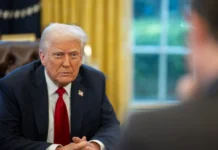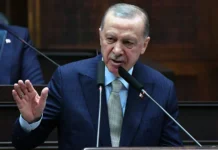“The horror, the horror,” mumbles the Marlon Brando character in Apocalypse Now. Though merely cinematic, this sentiment exclaims a brutally truthful observation: While each individual death must remain an integral part of species survival – after all, the laws of biology are not reversible by human intention or intervention – we need not actively hasten the process. This corrosive process includes war, crime, terrorism, genocide and overall neglect.
“Overall neglect?” This last term of indictment is plainly not “parallel” to the other four listed transgressions. It represents a sort of composite dereliction, one concerning evident disregard of both science (especially climate change) and human dignity (especially inequalities of human rights and material well-being). In Donald Trump’s United States, scientific neglect now extends to the microbial assaults of viral plague or Covid19.[1] Ominously, the cumulative impact of these fearful harms is plausibly synergistic.
This is not just another handy linguistic label. It means, by definition, that an injurious systemic “whole” is tangibly greater than the sum of its “parts.”[2] From the standpoints of both American and global survival, therefore, such synergies could prove urgent and determinative.
What next? Soon, if it may be assumed that we should all prefer survival to disappearance, certain basic questions must be raised. Above all, we should ask promptly and candidly,”How much more pain and suffering can this long- tormented planet endure?” And as a corollary query: At what point do the inhabitants of any so-called advanced democracy willingly accept a more serious citizen responsibility than simple vote casting. This vital but limited validation is now being offered only after various devastating agendas of existential harms have already been put into place.
At some point, all citizens must do much more. At a minimum, they must finally own up to a fundamental citizen obligation; that is, to restore intellect, education and genuine thought to their always-deserved pride of place.[3]
These are not silly questions. A democracy constructed upon the inherently shallow preferences of “mass” is always a contradiction in terms. The “mass man,” we may learn from twentieth-century Spanish philosopher Jose Ortega y’Gasset’s The Revolt of the Masses (1930), “learns only in his own flesh.” In the similarly clarifying words of Swiss psychologist and philosopher Carl G. Jung’s The Undiscovered Self (1957), “The mass crushes out the insight and reflection that are still possible with the individual, and this necessarily leads to doctrinaire and authoritarian tyranny if ever the constitutional State should succumb to a fit of weakness.”
A timely and pertinent example of such corrupted “learning” is Donald Trump, an intentionally dissembling US president who has no use for science or any disciplined analytic thought. For him, among his other notable personal debilities, reading is extraneous to understanding and policy; that is, it represents an altogether evident waste of time. In brief, whatever Trump needs to know about North Korea or China or Russia or the Corona virus can be gleaned more casually, effortlessly, from his own private feelings or “gut instincts.”
Unsurprisingly, for the citizens of his substantially suffering and imperiled country, this manner of visceral calculation represents a prescription for even greater national despair.
There is more. To rise above mass[4] presents thesingle most important survival challenge before us all, a core obligation that comes before answering all other seemingly crucial questions about politics, technology, ideology, and education. In universities, where intellectual direction and fashion are now largely determined by numbing mimicry and a raw commerce – a condition now being exacerbated by viral “plague” – our students will finally need to learn something primal and incontestable: An individual’s personal success can make genuine sense only if the larger world itself has a foreseeable future.
Ironically, this all too obvious conclusion has been conveniently pushed aside; perhaps it has never even been considered.
Still, learning and survival are not necessarily all that complicated. This unhappy planet, reflecting its myriad parts, faces stubbornly insidious problems. “The blood-dimmed tide is loosed,” observed the Irish poet William Butler Yeats, and “everywhere the ceremony of innocence is drowned.” No one can any longer reasonably doubt the applicability of these portentous lines to current human life. In this particular connection, the “rich” nations are often in the very same ambit of mortal vulnerability as the “poor.”
Like Covid19, a nuclear war could just as easily snuff out the lives of a privileged few as the unfortunate many.[5]
There is more. Today, expanding global deterioration and chaos is much more a palpable symptom of pathology than an actual disease. Virtually all world politics hides an inconspicuous truth. This is the ubiquitous and determined unwillingness of individuals to seek serious meaning and comfort within the authenticating margins of science and intellect.[6]
In consequence, America’s upcoming presidential election, though indispensable to liberate the beleaguered nation from a crowd-based president, a quintessential “mass man,” will have little serious bearing on the basic issues of human survival. This is because even if we can rid ourselves of this one specific source of deterioration, the forces that led to his selection in the first place would still likely be in place.
In the end, says Goethe, we depend upon creatures of our own making. Ultimately, what is needed to fix a broken planet must lie far beyond the fragmented unities and feuding tribes of life on earth. Only when we are finally allowed to see ourselves as parts of a single species, an insight closely understood by Sigmund Freud,[7] can we humans credibly entertain any hopes for progress and survival.
On the surface, encouraging “diversity” is nice, fair, and most assuredly democratic. Indisputably, such encouragement always makes ethical, social, industrial, and political sense. It is a good thing in itself. Nonetheless, it is not enough. What is also needed is a concurrent awareness of human oneness, of an undifferentiated species that finally acknowledges its core interrelatedness and interdependence.
In principle, at least, well-intentioned emphases on diversity need not represent a contradiction of our overriding species singularity, but this would require an explicit and prior affirmation of diversity as an intermediate step toward an eventual human solidarity. To be sure, all of this is far too much to expect from the current inhabitants of planet earth. At the same time, human progress if generally incremental, and longer term visions must be built upon short-term improvements. “The visionary,” observes Federico Fellini, the Italian film director, “is the only realist.”
There is more. In one form or another, tribal conflict has always driven world affairs. Without a clear sense of an outsider, of an enemy, of an inferior, of an “other,” most people will feel altogether lost. Still drawing our critical sense of self-worth from membership, in the state, or the faith, or the race -we humans still cannot satisfy even the most minimal requirements of coexistence.
This incapacity is simply not tolerable or sustainable.
Surprisingly, our species’ very considerable progress in technical and scientific realms has no recognizable counterpart in basic human relations. Sure, we can fly to the moon, take extraordinary pictures of Mars, and prepare to put cars on the rod without drivers, but we still can’t get beyond the sheer ecstasy of demeaning and slaughtering “others.” For now, as for millennia before, the greatest pleasure of civilization is still the “freedom” to oppress hordes who allegedly don’t “belong.”
The veneer of civilization continues to be razor thin.[8] To wit, substantial portions of humankind remain dedicated to sacrificial practices that are conveniently disguised as “revolution,” “national liberation,” or “national self-determination.”
Our entire system of international relations and international law[9] is rooted in a deeply etched pattern of “horror.” The sanitizing name that we assign to this endlessly recurring pattern is “history.” Perversely, within its seamless litany of grievous harms, it can sometimes seem “rational” to defile and destroy those who would have the temerity to express contrarian beliefs and affiliations.
Such calculations of “rationality” need not be even marginally decent or moral, but that raises a separate issue entirely.
The calculated destructiveness of human “tribes” has been most evident when one tribe encounters another that is seemingly seeking alternative paths to immortality. This becomes a fundamental problem in world politics because in this broadest possible realm of inter-communal activity, there can be no greater power than immortality. Though almost never deeply understood by statesmen or politicians, a presumptive power over death must represent the absolutely preeminent form of human capacity.
Seeing requires distance. Up close and personal with leader-fed gibberish, entire civilizations glance greedily over mountains of fresh corpses, and announce, without apology, that “life is good.” Set in motion by “herds” or “crowds” that flee serious analytic thought, our competitive mass societies continue to suck out the very marrow of human wisdom, reverence, and compassion. In essence, this is done in a desperately oblivious dash to outdo and outlive all others.[10]
In this frenzied adversarial rhythm, breathlessness is de rigueur. Accordingly, the cascading horror of life on earth creates a deafening noise, but it is still possible to listen for more transient sounds of grace and harmony. To begin, however, we must first pay closer attention to our most intimate human dispositions of empathy and compassion. In any concluding analysis, these private feelings could prove more important to species survival than the comfortingly mysterious promises of individual immortality.[11]
With regard to human durability, the citizens remain grievously unprepared. From a survival standpoint, the critical time for politics is already over. To survive, together, all of us, as interlinked members of one embracing species, must learn to rediscover a life that is detached from “tribal” manipulations. Today, in the United States, these manipulations include variously contrived promises of “greatness.
Now, for Americans in particular, it is only in the midst of this suitably awakened human spirit that they may finally learn something beyond the suffocating clichés and defiling banalities of current presidential politics.
Too many still turn away from wisdom amid the persisting triumph of pain, death, and decomposition. The spreading horror of life on earth can never be undone by improvingeconomics, by building larger missiles, by naively fashioning unenforceable international treaties, or even by standing steadfast for “democracy.” Inevitably, easing the horror requires all peoples to see themselves as inter-linked parts of an organic whole.
Traditionally combative expressions of belligerent nationalism can never be authentically patriotic. Even among the most evident antinomies of this world, any truly promising spirit of patriotism must first acknowledge (1) the core singularity or “oneness”[12] of our species[13] and (2) the corollary interdependence of all nation-states.[14] In the end, any serious and decent forms of national interest must affirm that all human beings are indissolubly interconnected.
From the standpoint of rapidly converging planetary dangers,[15] we can learn ways to ease the “horror,” but only if we can first learn to reject unworthy national leaders.
Resoundingly.
[1] Not only Trump himself, but his many servile imitators, have magnified the harms of Covid19..An obvious example is Florida Governor Ron Di Santis, who has so wittingly abandoned science in favor of a presumptively more palatable political gibberish. For this inexcusable leadership abandonment, many in Florida are now paying with their lives.
[2] See, by this author, at Harvard National Security Journal, Harvard Law School: https://harvardnsj.org/2015/06/core-synergies-in-israels-strategic-planning-when-the-adversarial-whole-is-greater-than-the-sum-of-its-parts/ See also, by Professor Beres, at Modern War Institute, West Point: https://mwi.usma.edu/threat-convergence-adversarial-whole-greater-sum-parts/
[3] Back in the 17th century, the French philosopher Blaise Pascal remarked prophetically, in his justly-celebrated Pensées: “All our dignity consists in thought….It is upon this that we must depend….Let us labor then to think well: this is the foundation of morality.” Similar reasoning characterizes the writings of Baruch Spinoza, Pascal’s 17th-century contemporary. In Book II of his Ethics, Spinoza considers the human mind, or the intellectual attributes, and – drawing from Descartes – strives to define a comprehensive theory of learning and knowledge.
[4] The German philosopher Friedrich Nietzsche would prefer the term “herd;” Sigmund Freud, a Nietzschean-derivative “horde;” and Danish existentialist Soren Kierkegaard a “crowd.” In essence, all these terms have the same conceptual referent; that is, a coming-together of individuals that is easily manipulable by political leaderships, and that represents a subversion of once-latent potentialities for excellence and progress. Famously, Kierkegaard sums up the problem with this succinct declaration: “The crowd is untruth.”
[5] For informed assessments of nuclear war consequences by this author, see: Louis René Beres, Surviving Amid Chaos: Israel’s Nuclear Strategy (Rowman & Littlefield, 2016; 2nd. ed., 2018); Louis René Beres, Apocalypse: Nuclear Catastrophe in World Politics (Chicago: University of Chicago Press, 1980); Louis René Beres, Mimicking Sisyphus: America’s Countervailing Nuclear Strategy (Lexington MA: Lexington Books, 1983); Louis René Beres, Reason and Realpolitik: US Foreign Policy and World Order (Lexington MA; Lexington Books, 1984); and Louis René Beres, ed., Security or Armageddon: Israel’s Nuclear Strategy (Lexington MA: Lexington Books, 1986).
[6] In terms of Jose Ortega y’ Gasset’s 20th century classic, The Revolt of the Masses (1930): “The mass does not wish to share life with those who are not of it. It has a deadly hatred of all that is not itself.”
[7] Sigmund Freud maintained a general antipathy to all things American. In essence, he most objected, according to Bruno Bettelheim, to this country’s “shallow optimism” and its seemingly corollary commitment to a crude form of materialism. America, thought Freud, was very evidently “lacking in soul.” See: Bruno Bettelheim, Freud and Man’s Soul (New York: Alfred A. Knopf, 1983), especially Chapter X.
[8] Fyodor Dostoyevsky comments about such aspects of civilization: “What is it in us that is mellowed by civilization? All it does, I’d say, is to develop in man a capacity to feel a greater variety of sensations. And nothing, absolutely nothing else. And through this development, man will yet learn how to enjoy bloodshed. Why, it has already happened….Civilization has made man, if not always more bloodthirsty, at least more viciously, more horribly bloodthirsty.” See: Fyodor Dostoyevsky, Notes From Underground 108 (Andrew R. MacAndrew, trans., New American Library, 1961)(1862).
[9] One must also remember here that pertinent obligations of international law are also generally obligations of US law. In the precise words of Mr. Justice Gray, delivering the judgment of the US Supreme Court in Paquete Habana (1900): “International law is part of our law, and must be ascertained and administered by the courts of justice of appropriate jurisdiction….” (175 U.S. 677(1900)) See also: Opinion in Tel-Oren vs. Libyan Arab Republic (726 F. 2d 774 (1984)).Moreover, the specific incorporation of treaty law into US municipal law is expressly codified at Art. 6 of the US Constitution, the so-called “Supremacy Clause.”
[10] See, on this point, Ernest Becker, Escape From Evil (New York: The Free Press, 1975). In a similar vein, says Otto Rank in his Will Therapy and Reality: “The death fear of the ego is lessened by the killing, the Sacrifice, of the other; through the death of the other, one buys oneself free from the penalty of dying, of being killed.”
[11] Says the twentieth-century German philosopher Karl Jaspers in his Reason and Anti-Reason in Our Time (1952); “There is something inside all of us that yearns not for reason but for mystery – not for penetrating clear thought but for the whisperings of the irrational….”
[12] Apropos of such unassailable “oneness,” we may learn from Epictetus, the ancient Greek Stoic philosopher, “You are a citizen of the universe.” A still-broader idea of human singularity followed the death of Alexander in 322 BCE; with it came a coinciding doctrine of “universality” or interconnectedness. By the Middle Ages, this political and social doctrine had fused with the notion of a respublica Christiana, a worldwide Christian commonwealth, and Thomas, John of Salisbury and Dante were looking upon Europe as a single and unified Christian community. Below the level of God and his heavenly host, all the realm of humanity was to be considered as one. This is because all the world had been created for the same single and incontestable purpose; that is, to provide secular background for the necessary drama of human salvation. Here, only in its relationship to the universe itself, was the world considered as a part rather than a whole. Says Dante in De Monarchia: “The whole human race is a whole with reference to certain parts, and, with reference to another whole, it is a part. For it is a whole with reference to particular kingdoms and nations, as we have shown; and it is a part with reference to the whole universe, which is evident without argument.” Today, the idea of human oneness can and should be fully
justified/explained in more purely historical/philosophic terms of human understanding.
[13] Says the Talmud: “The earth from which the first man was made was gathered in all the four corners of the world.”
[14] “The existence of ‘system’ in the world is at once obvious to every observer of nature,” says French Jesuit philosopher Pierre Teilhard de Chardin in The Phenomenon of Man, “no matter whom….Each element of the cosmos is positively woven from all the others….”
[15] To the extent that such dangers may be genuinely apocalyptic, the underlying idea of apocalypse seems to have been born in ancient Iran (Persia), specifically, with the Manichaeism of the Zoroastrians. At least one of these documents, The War of the Sons of Light Against the Sons of Darkness, found in a Qumran cave, is a comprehensive description of Jewish military tactics and regulations at the end of the Second Commonwealth. The “Sons of Light” were expected to prevail in battle against the “Sons of Darkness” before the “end of days,” and the later fight at Masada was widely interpreted as an apocalyptic struggle between a saintly few and the many wicked.


























